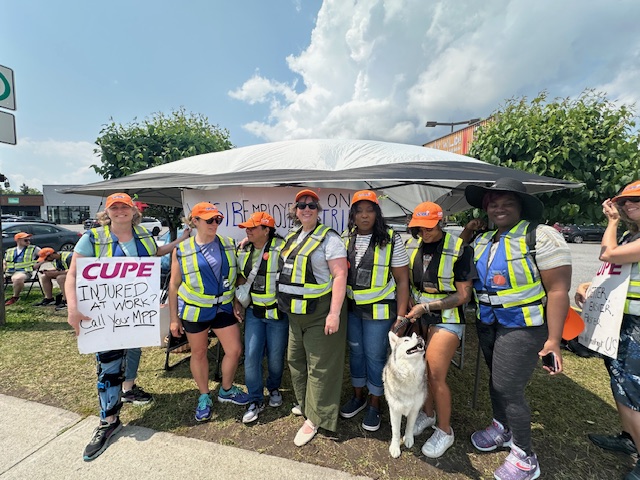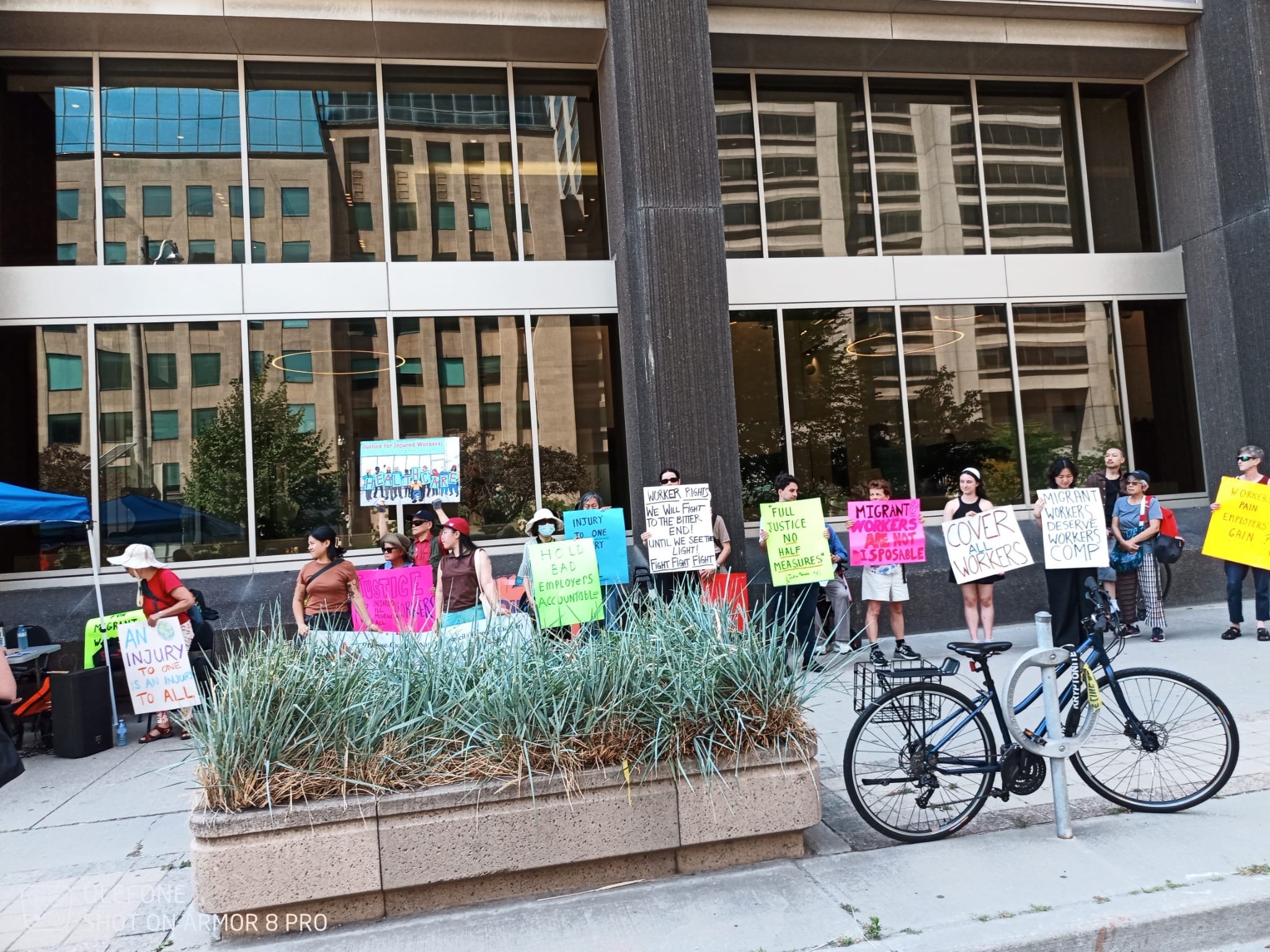'No reason we couldn't get this done very quickly' says union leader with only a handful of issues remaining

After more than three weeks of strike action at the Workplace Safety and Insurance Board (WSIB), the prospect of a resolution appears closer than at any time since negotiations began. However, major points of contention remain between WSIB leadership and the Ontario Compensation Employees Union (OCEU/CUPE 1750), particularly surrounding service disruptions, backlog management, and workload relief.
Progress at the table, but frustrations remain
Both the WSIB and union confirm talks continue through a provincial mediator. “It’s a good sign when parties are at the table having discussions,” says Aaron Lazarus, vice president of communications at WSIB. “We’ve seen in the past where the union has walked away, but they are there. We're looking for fair and realistic expectations.”
Harry Goslin, president of OCEU/CUPE 1750, also confirms the positive progress but expresses frustration with the pace. “The union did a comprehensive counterproposal on Wednesday night. We had fully expected to hear back from WSIB Thursday. That did not happen,” he says. “We’re saying to WSIB: stop dragging this out.”
Goslin suggests only a handful of issues remain, saying, “there’s no reason we couldn’t get this done very quickly.” He alleges the slow pace is due to the Ford government’s involvement in WSIB’s bargaining mandate.
Lazarus confirms the issues on the table are dwindling. “We’re definitely lower into what we might call a more manageable handful or two of outstanding proposals.”
Automation and disputed backlogs
A newly surfaced internal WSIB memo ignited debate over service levels during the strike. The union says the memo contradicts WSIB’s public assurances that claims processing remains unaffected. The document, obtained and released by the union, outlines temporary adjudication changes that automatically approve physical injury claims—including those with employer objections, delayed reporting, or pre-existing conditions.
“This confirms what we’ve been saying all along. There is a backlog,” Goslin says. “The employer has been misleading the public, and now they’re cutting corners in an attempt to keep up appearances.”
Lazarus acknowledges the increased use of automation but defends the measure as a resource management tool rather than evidence of a breakdown. “We are working with about a third of our usual capacity,” he says. “We’ve adjusted our automation rules so that we can use our human resources to do more valuable work—like helping people get their income replacement or health care.”
He maintains all claims continue to be registered the day they are submitted, saying, “there is no backlog in registering a claim.”
Pay, workload claims and case numbers
The union maintains high workloads and mental health stressors are core issues in the dispute. It cites a peer-reviewed survey showing elevated levels of anxiety and depression among WSIB workers and warns of serious long-term risks if caseloads are not addressed.
WSIB, meanwhile, points to measures already taken to reduce workload. In its most recent public release, the agency highlights that it has cut average caseloads by 60% since their 2021 peak and added 100 net new team members to the case management division. It has also proposed enhancements to a joint workload committee with dedicated resources to address remaining issues.
Wages also remain a sticking point. The WSIB says it has offered above-inflation wage increases for each of the next three years, despite Canada’s most recent inflation rate sitting at 1.7%. The board says more than 60% of OCEU members already earn over $100,000, and that under the proposed deal, more than 73% would exceed that threshold by 2027. CEO Jeff Lang calls the offer “a genuine effort to put this strike behind us and get back to what we do best: helping people.”
The union counters the offer still fails to account for years of wage stagnation under Bill 124 and inflationary erosion. In previous statements, Goslin has said the union is seeking wage increases above 3% a year.
Deal within reach
Both sides signal that a deal is possible, though their tone differs. Lazarus says progress is happening and that issues have narrowed significantly. Goslin confirms the union is ready to bargain through the weekend. “We’ll go through the nights to get this thing done,” he says, calling on WSIB and the Ford government to “pull out the stops” and prioritize the resolution.
While tensions remain high, there is growing pressure from injured workers, employers, and the broader public for a solution. As talks continue heading into the fourth week of job action, both the WSIB and OCEU face mounting expectations to finalize a deal and restore full operations.





